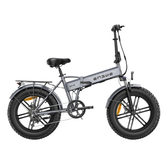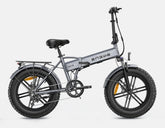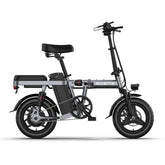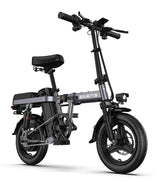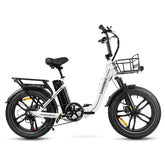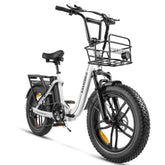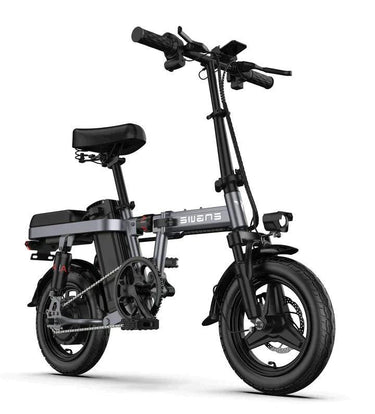Breathe Easy, Ride Green: The Environmental Advantages of E-bikes and E-scooters
Small Wheels, Big Impact: Why E-bikes and E-scooters are the Future of City Transportation
Traffic congestion, air pollution, and climate change – these are just a few challenges plaguing our cities today. As we strive for environmental advantages of E-bikes and E-scooters for a more sustainable future, alternative modes of transportation are gaining traction. Among these are electric bikes (e-bikes) and electric scooters (e-scooters), offering a fun, convenient, and eco-friendly way to get around.
But how exactly do environmental advantages of E-bikes and E-scooters differentiates with traditional vehicles?
Let's delve into the key advantages:
- Reduced Emissions: Unlike traditional gasoline-powered vehicles, e-bikes and e-scooters produce zero tailpipe emissions. This significantly reduces air pollution levels, particularly harmful pollutants like nitrogen oxides and particulate matter. Cleaner air translates to improved respiratory health for everyone, especially in urban areas.
- Lower Carbon Footprint: E-bikes and e-scooters rely on electric power, which can be generated from renewable sources like wind or solar energy. While the electricity grid might not be entirely clean everywhere yet, it's a significant improvement over the direct emissions from gasoline-powered vehicles. As renewable energy sources become more prevalent, the carbon footprint of e-bikes and e-scooters will continue to decrease.
- Traffic Reduction: By offering a fast and efficient way to travel short distances, e-bikes and e-scooters can encourage people to leave their cars behind. This leads to fewer vehicles on the road, resulting in reduced traffic congestion, improved fuel efficiency for remaining cars (less stop-and-go traffic), and ultimately, lower overall emissions.
- Noise Pollution Reduction: Traditional vehicles contribute significantly to noise pollution in cities. E-bikes and e-scooters, on the other hand, are much quieter. This creates a more peaceful and pleasant environment for everyone.
- Sustainable Commuting: E-bikes and e-scooters provide a viable alternative for commuting to work or running errands. This reduces dependence on personal vehicles and encourages a more active lifestyle, promoting overall health and well-being. Additionally, parking becomes a breeze, eliminating the need to circle for a spot and further contribute to congestion.
Beyond the benefits mentioned above, e-bikes and e-scooters also promote a more sustainable transportation infrastructure. They require less parking space compared to cars, and dedicated bike lanes can be easily incorporated into existing city layouts.
It's important to note that the environmental impact of e-bikes and e-scooters depends on several factors, including:
- Source of Electricity: The environmental impact of e-bikes and e-scooters is directly linked to the source of electricity used to charge their batteries. As renewable energy sources become more dominant, the environmental benefits will increase.
- Manufacturing Process: The manufacturing process of e-bikes and e-scooters can have some environmental impact. However, this is typically much lower compared to the ongoing emissions of traditional vehicles.
- Battery Disposal: Proper disposal of e-bike and e-scooter batteries is crucial to avoid environmental contamination. Fortunately, recycling programs for lithium-ion batteries are becoming increasingly available.
In conclusion, e-bikes and e-scooters offer a compelling solution for reducing our environmental footprint. By making a conscious choice to switch to these sustainable modes of transportation, we can contribute to cleaner air, quieter cities, and a healthier planet.

